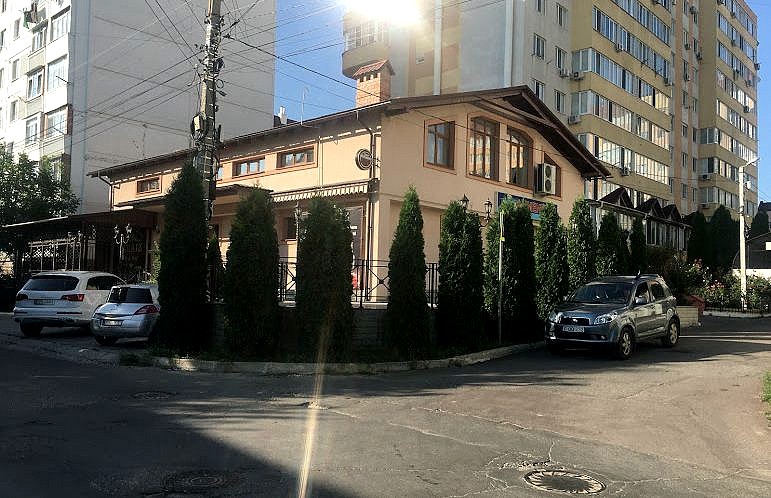CONSULAR LEGALIZATION
The company will assist you in familiarization with basic requirements applicable to the legalization of documents, as well as will save you from tiresome procedures and long queues, by taking over the legalization of your documents and translation thereof. In this section we will try to outline the consular legalization procedure of documents, to give the list of countries applying a simplified legalization procedure – apostille, as well as the list of countries, where legalization is not required.
Consular legalization is the certification of documents conformance with legislative regulations of a country. As a rule, it represents the authentication of the official person’s signature or stamp affixed upon the document, so that this document could be used on the territory of another country.
Documents issued in the Republic of Moldova and intended to be used abroad
Documents issued in the Republic of Moldova by the official authorities or with participation thereof, and intended to be used abroad, shall be legalized by the Consular Office under the Ministry of Foreign Affairs and European Integration of the Republic of Moldova (hereinafter – MFAEI). Different package of documents and corresponding pre-legalization procedures shall be applicable to different types of documents. Typically, for the purposes of documents legalization the papers below shall be submitted:
- Application
- Original or copy of the document (depending on the type of the document)
- Identity card or power of attorney, if the documents are submitted by the authorized person. Immediate relatives – mother, father, brother, sister, husband, wife – may submit documents without any power of attorney.
Depending on the type of the document submitted for the legalization to MFAEI, it may be necessary to pass through its preliminary legalization by the notary and Ministry of Justice of the RM, or the Ministry of Internal Affairs of the RM, or the Ministry of Health of the RM, or the Ministry of Informational Technologies and Development of the RM.
Documents issued by organizations or institutions of the Republic of Moldova, as a rule, shall be legalized in copies certified by the notary and the Ministry of Justice of the RM. Upon legalization thereof by the Consular Office under MFAEI, these documents shall be legalized by the consular institution of the country, where these documents will be used.
Foreign documents intended to be used in the Republic of Moldova
Before legalizing in the Consular Office under MFAEI RM the documents issued by official authorities of a foreign state or with participation thereof, you shall preliminary legalize them in the Ministry of Foreign Affairs and/or consular institution of the corresponding state.
The main documents submitted for legalization to the Consular Office under MFAEI RM are:
- Application
- Document itself in the original, legalized by the Ministry of Foreign Affairs of the foreign state or in the consular institution of the foreign state in the Republic of Moldova.
- Identity card, passport and power of attorney (if the documents are submitted by an authorized person), certified by MFA or consular institution of the corresponding foreign state. Immediate relatives may take up the legalization procedure without any power of attorney.
Foreign documents incoming to the Republic of Moldova and not legalized in the consular institutions of the RM abroad, shall be firstly legalized by the consular institution of the corresponding state in the RM, and afterwards – in the Consular Office under MFAEI RM. Shall not be subject to legalization all and any documents conflicting with the Republic of Moldova legislation, issued with violation of documents’ execution, as well as documents, which can not be taken abroad.
Simplified procedure – apostille
The Hague Convention as of October 5, 1961 exempting from legalization has permitted the countries-signatories of this Convention to apply a simplified procedure of documents’ mutual recognition – by means of apostillization. This procedure has entered into force in the Republic of Moldova since March 16, 2007.
List of countries-members of the Hague Convention:
Australia, Austria, Azerbaijan, Albania, Andorra, Antigua and Barbuda, Argentina, Armenia, Bahamas, Barbados, Belarus, Belize, Belgium, Bulgaria, Bosnia and Herzegovina, Botswana, Brunei, Great Britain, Hungary, Venezuela, Germany1, Honduras, Grenada, Greece, Dominican Republic, Israel, India, Ireland, Island, Spain, Italy, Kazakhstan, Cyprus, China2, Columbia, Latvia, Lesotho, Liberia, Lithuania, Lichtenstein, Luxemburg, Macedonia, Malawi, Malta, Marshall Islands, Mexico, Monaco, Morris (island), Namibia, Netherlands, Niue (island), New Zeeland, Norway, Cook Islands, Panama, Poland, Portugal, Russia, Romania, Salvador, Samoa, San-Vincent and Grenadines, Saint Kitts and Nevis, San Marino, Santa Lucia, Swaziland, Seychelles Islands, Serbia and Montenegro, Slovakia, Slovenia, Surinam, USA, Tonga, Trinidad and Tobago, Turkey, Ukraine, Fiji (islands), Finland, France, Croatia, Czech Republic, Switzerland, Swiss, Ecuador, Estonia, RSA, Japan.
1Convention between the Republic of Moldova and Germany has not entered into force.
2Only in special administrative regions: Hong Kong and Monaco.
In order to get the apostille affixed, it is necessary to submit to the Apostille Department by the Ministry of Justice of the Republic of Moldova the following documents:
- Application for affixing apostille on the official document
- Official document itself
- Identity document
- Document certifying the payment of state fee
Pursuant to the Hague Convention, the substitution of consular legalization for apostille shall cover solely the official documents issued by the country-members thereof. According to this Convention such official documents shall include:
- documents issued by an authority or public officer under the state jurisdiction, including the documents issued by the public prosecution office, court secretary or law-enforcement official;
- administrative documents;
- notarial acts;
- official notes, such as registration notes; visas confirming a definite date; authentication of signature on the document, which is not certified by the notary.
This Convention shall not cover:
- the documents executed by diplomatic or consular agents;
- administrative documents directly related to commercial or customs operations.
Exemption from legalization
No consular legalization and apostillization shall be required, if the corresponding countries have concluded an international treaty. Thus, the state-members of the Convention on Legal Assistance and Legal Relations in Civil, Family and Criminal Matters of 22.11. 1983, the Republic of Moldova being the part of, have agreed on the mutual recognition of official documents without consular legalization or apostillization thereof. As far as such documents concern, it may be required to provide translation thereof in the corresponding language and to certify such translation by the notary. The state-members of the aforementioned Convention are the following: Republic of Moldova, Republic of Belarus, Georgia, Uzbekistan, Kazakhstan, Russia, Tajikistan, Armenia, and Azerbaijan.
The Republic of Moldova has also concluded with some states bilateral agreements, which provide for mutual recognition of official documents without consular legalization or apostillization thereof. Such documents also require only translation to the corresponding language and certification by the notary. The states mentioned above are: Romania, Latvia, Lithuania, Turkey1, and Czech Republic.
1Concerning the documents issued by the law-enforcement authorities only.
For the detailed information on consular legalization and apostille you can address to the company. Our specialists are always ready to consult you on your specific situation.
Fill the form to send us the message






















